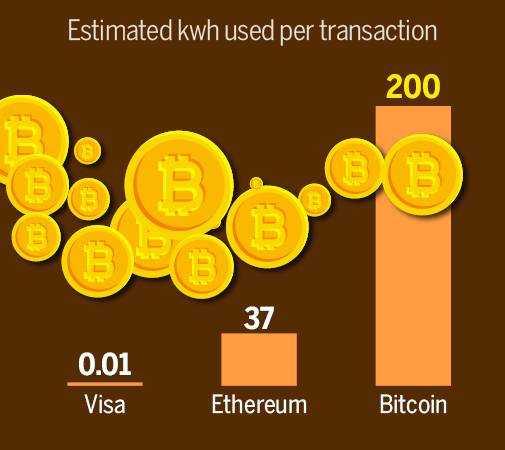Explore the World's Best Ideas
Join today and uncover 100+ curated journeys from 50+ topics. Unlock access to our mobile app with extensive features.
Bitcoin does consume a large amount of energy
According to the Cambridge Center for Alternative Finance (CCAF), Bitcoin currently consumes around 110 Terawatt Hours per year 0.55% of global electricity production, or roughly equivalent to the annual energy draw of small countries like Malaysia or Sweden.
19
674 reads
The energy it should consume depends on your feeling about it
If you believe that Bitcoin offers no utility beyond serving as a ponzi scheme or a device for money laundering, then it would only be logical to conclude that consuming any amount of energy is wasteful. If you are one of the tens of millions of individuals worldwide using it as a tool to escape monetary repression, inflation, or capital controls, you most likely think that the energy is extremely well spent.
17
86 reads
Energy consumption ≠ Carbon emission
The energy consumption to mine is easy to estimate: You can just look at its hashrate (i.e. the total combined computational power used to mine Bitcoin and process transactions), and then make some educated guesses as to the energy requirements of the hardware that miners are using.
To calculate associated carbon emission you need to know energy mix i.e the makeup of different energy sources used by computers mining bitcoin. Mining is an intensely competitive business, and miners tend not to be particularly forthcoming around the details of their operations making it even harder to calculate.
16
66 reads
Bitcoin got hydro power
Bitcoin can make use of hydropower which is not accessible to most. This is one of the reasons why some locations in china are heartlands of mining where production of such energy outpaces demand.
Another source of energy is natural gas which is a byproduct of oil extraction. It pollutes the environment but miners are leveraging this to mine. A minor player but some suggest natural gas from the US and Canada alone can run an entire bitcoin network.
15
70 reads
Consumes more energy than using it
Many journalists and academics talk about Bitcoin’s high “per-transaction energy cost,” but this metric is misleading.
Bitcoin’s energy consumption happens during the mining process. Once coins have been issued, the energy required to validate transactions is minimal. Simply looking at Bitcoin’s total energy draw to date and dividing that by the number of transactions doesn’t make sense, most of that energy was used to mine Bitcoins, not to support transactions
15
63 reads
The bitcoin protocol & expected reduction in energy consumption
People sometimes assume that bitcoin will commandeer entire energy grids. It likely won't.
First, because the energy mix of bitcoin grows less reliant every year. Eg US is shifting to ESG focused miners and china recently banned coal-based mining.
Secondly, miners receive small fees for the transactions that they verify while mining, as well as whatever profit margins they can get when they sell the bitcoins they have mined, and the bitcoin protocol, is built to halve this issuance-driven component of miner revenue every four years. The financial incentive to invest will naturally decrease.
15
60 reads
IDEAS CURATED BY
Generalist. Great minds discuss ideas, average minds discuss events, small minds discuss people.
Yug Jain's ideas are part of this journey:
Learn more about moneyandinvestments with this collection
How to close the deal
How to handle objections
How to present your value to your employer
Related collections
Similar ideas
4 ideas
4 ideas
How Blockchain Technology Can Help Improve the Planet
humanprogress.org
7 ideas
Ethereum upgrades: A beginner’s guide to ETH 2.0
cointelegraph.com
Read & Learn
20x Faster
without
deepstash
with
deepstash
with
deepstash
Personalized microlearning
—
100+ Learning Journeys
—
Access to 200,000+ ideas
—
Access to the mobile app
—
Unlimited idea saving
—
—
Unlimited history
—
—
Unlimited listening to ideas
—
—
Downloading & offline access
—
—
Supercharge your mind with one idea per day
Enter your email and spend 1 minute every day to learn something new.
I agree to receive email updates





